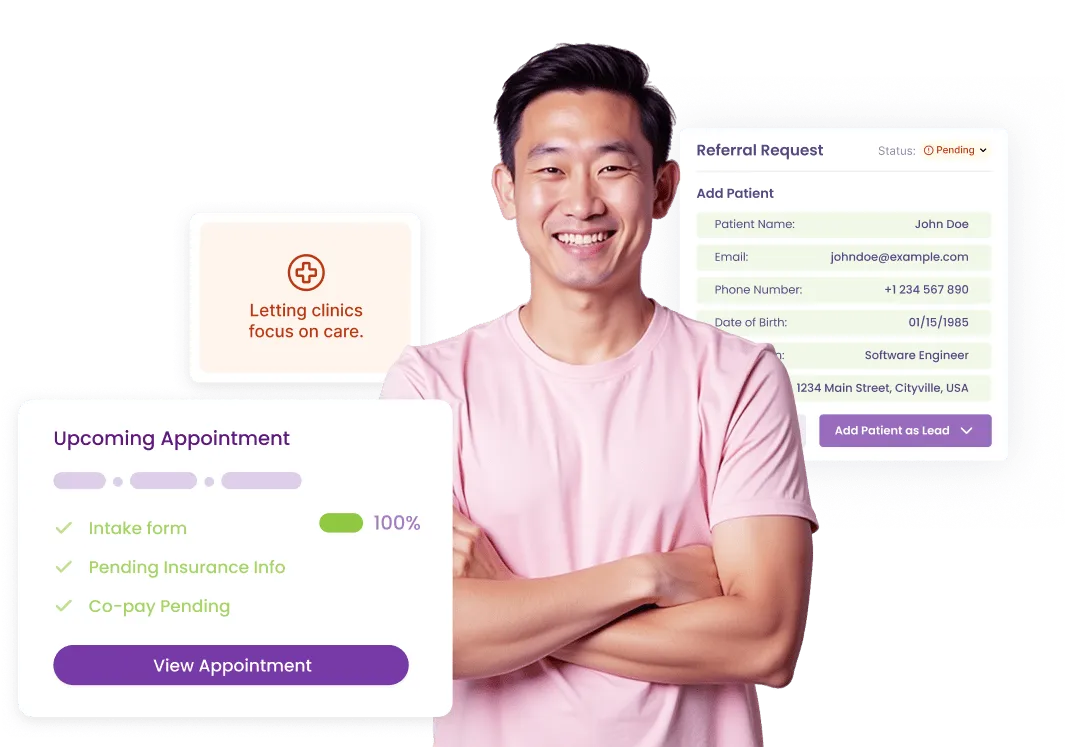H0001 – Substance Use Counseling / Behavioral Health Service
CPT code H0001 represents a distinct mental or behavioral health service, including evaluation, therapy, or care coordination.
What is CPT
H0001
?
H0001 is a crucial CPT code utilized in the realm of substance use counseling services. This entry provides an in-depth overview of the clinical applications of this code, documentation requirements, and considerations for billing compliance. It is essential for providers to align their clinical notes with evidence-based practices, ensuring that treatment goals, interventions employed, and measurable progress are meticulously documented. For time-based services, accurate start and stop times must be recorded to substantiate the billed duration, thereby enhancing the integrity of the billing process.

Documentation Tips
When billing for time-based psychotherapy under the H0001 code, it is critical to document the exact start and stop times for each session. Providers should also include details about the therapeutic modality employed, whether it be cognitive behavioral therapy, motivational interviewing, or another appropriate approach. Additionally, records should reflect the clinical focus of the session, the patient's responses to interventions, and a clear plan for follow-up care. For any scored assessment instruments utilized during the session, maintain copies of these completed tools within the patient's record. In instances of telehealth services, be sure to document patient consent for virtual care as well as the specific platform used for the session. Utilizing consistent documentation frameworks, such as SOAP (Subjective, Objective, Assessment, Plan) or DAP (Data, Assessment, Plan), will facilitate audit readiness and improve overall documentation quality.

At a Glance
- Service Type: Substance Use Counseling
- Use Case: Individual and group counseling sessions aimed at addressing substance use disorders.
- Typical Setting: Outpatient clinics, community health centers, or telehealth platforms, depending on payer policies.
- Billing Unit: Billed per individual session or intervention, with variations based on specific payer guidelines.
- Common Pairings: Often billed alongside codes such as 90791 (psychiatric diagnostic evaluation), 96127 (brief emotional-behavioral assessment), and various psychotherapy codes.
Billing Examples
Consider a scenario in which a counselor conducts a session focused on relapse prevention techniques for a patient recovering from alcohol use disorder. During this session, the provider documents specific triggers that the patient identifies, strategies for coping with cravings, and updates to the treatment plan based on the patient’s progress. This documentation should highlight the time spent on each activity to support billing under H0001. Furthermore, if the provider conducts a group therapy session to address similar themes, it is essential to bill this service under the appropriate HCPCS/CPT codes, which may differ based on payer rules. Keeping a clear distinction between individual and group counseling sessions is paramount for compliance.
Compliance Guidelines
- Prior to billing, verify the specific coverage and authorization requirements set forth by each payer to ensure compliance with their guidelines.
- Thoroughly document medical necessity for each service provided and ensure a direct linkage between services rendered and appropriate ICD-10 diagnoses.
- Utilize correct modifiers as required by payers, such as modifier 95 for telehealth services, to indicate that the service was delivered remotely.
- Avoid upcoding practices; always select the code that accurately reflects the documented time and level of service provided during the session.
- Conduct regular audits of documentation and billing practices to minimize claim denials and enhance the quality of clinical records.
Common ICD-10 Codes
Helpful links for mental health billing and documentation
- F10.20 - Alcohol use disorder, unspecified
- F11.21 - Opioid use disorder, moderate
- F19.20 - Other psychoactive substance use disorder, unspecified
- F10.10 - Alcohol use disorder, mild
- F12.20 - Cannabis use disorder, unspecified
Additional Resources
Helpful links for mental health billing and documentation
Related CPT Codes
Helpful links for mental health billing and documentation
Got questions? We’ve got answers.
Need more help? Reach out to us.
Q1: What is the primary purpose of the H0001 code?
A: The H0001 code is designated for counseling services related to substance use, and it is imperative that the clinical activity aligns with the code definition. Providers must ensure that all documentation supports the billed service to avoid potential compliance issues.
Q2: Is H0001 billable through telehealth?
A: Yes, many payers allow billing for H0001 via telehealth, provided that the service is delivered synchronously and appropriate modifiers and patient consent are documented. It is advisable to verify specific payer policies regarding telehealth coverage.
Q3: What type of documentation should payers expect?
A: Payers typically request documentation that includes the time spent on the service, the therapeutic techniques or instruments utilized, patient response to interventions, and a clear connection to a covered ICD-10 diagnosis.
Q4: Can H0001 be billed alongside other services?
A: Yes, when billing multiple services, it is essential to document the distinct time spent on each service and provide a rationale for each. In such cases, utilizing add-on codes or adhering to E/M separation rules, as applicable, will ensure compliance.
Q5: What are some common reasons for denial of H0001 claims?
A: Common denial reasons include incomplete time records, insufficient documentation of medical necessity, incorrect modifiers, or billing for services beyond the frequency limits established by payers.

